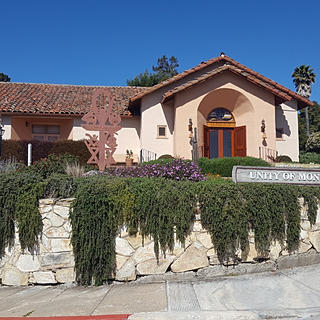Rev. Michelle's Message October 13, 2022
- M Price
- Oct 17, 2022
- 2 min read
In the fall of 1991, while studying and living in Mexico, I had the opportunity to visit the island of Janitzio in the Mexican state of Michoacán during their Día de los Muertos celebrations. Janitizio is a tiny island in Lake Pátzcuaro inhabited by the indigenous P’urhepecha people where the ancient celebration of Day of the Dead is still alive and thriving. As my friends and I—all students at the Universidad de Guadalajara—wandered around the island, it seemed that almost every home had a brightly lit and beautifully decorated altar dedicated to their loved ones and most had their doors wide open, allowing us to peek in and appreciate their beautiful ofrendas.
We then attended a special celebration in which the local fisherman put on a show in their small lanchas (dugout boats) that were lit with candles, waving their butterfly nets in beautiful movements that looked almost like a ballet. Traditionally, this waving of the nets is meant to wake up the ghostly guardians beneath the lake and coax them toward the cemeteries for the festivities. Then there was a performance of folklórico, the traditional folk dances of Mexico, including the typical danza de los viejitos (dance of the old men) with their strange masks and funny dance steps. We were told by our tour guide to keep our eye out for the colorfully dressed indigenous girls who, if they were single and looking for a novio, would be seen coquettishly chewing on their brightly-colored rebozos (woven shawls) to indicate their availability for dating. Sure enough, we saw several of them.
Needless to say, I was mesmerized by all of it and my decades-long fascination with the Day of the Dead began. This fascination, along with my lifelong study of Mexican culture and my deep love and respect for the Mexican people, is what led me to introduce the tradition of Día de los Muertos to our church some eight or so years ago.
This special time of year has become a treasured annual observance at UMB. Many of us find comfort and deep meaning in the tradition of remembering and honoring our departed loved ones during Day of the Dead, and in opening our hearts to the Mexican perspective on death as a natural, and even beautiful, part of life. Our communal altar decorated with photos and mementos of our loved ones gives us the chance to share our common grief and to bond more deeply as a community. I have seen beautiful healings take place around this sacred ceremony.
I hope some of you will join us this Friday at 5:30 for a Day of the Dead craft and movie night. First we will learn about the connection between monarch butterflies and Day of the Dead. We will then paint and decorate paper skull masks, followed by pizza and Mexican hot chocolate, and finally we’ll watch a fun Day of the Dead movie. This event is for children and adults alike! Come for part or all of it. See you there!
Many Blessings,
Rev. Michelle














Comments